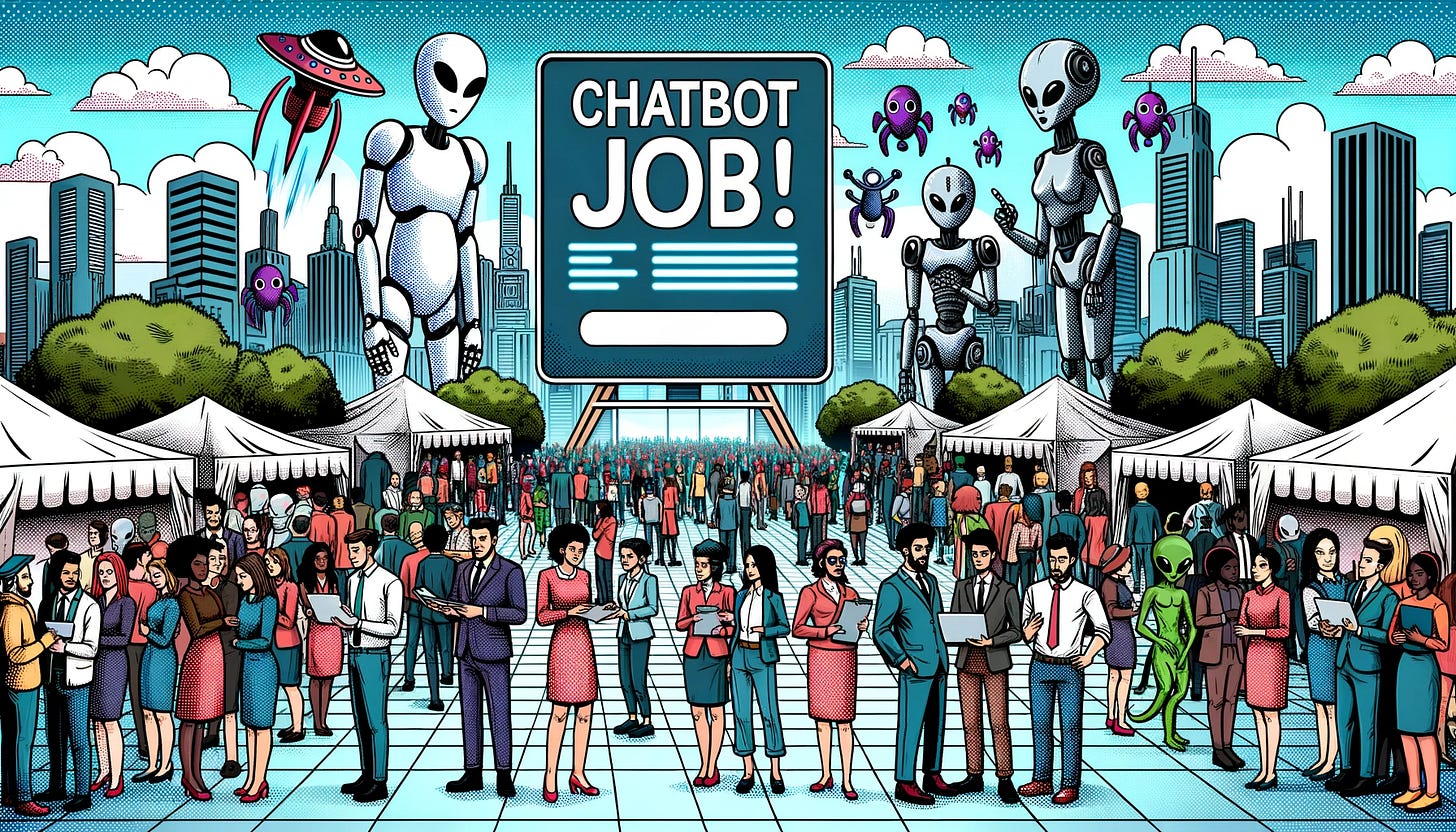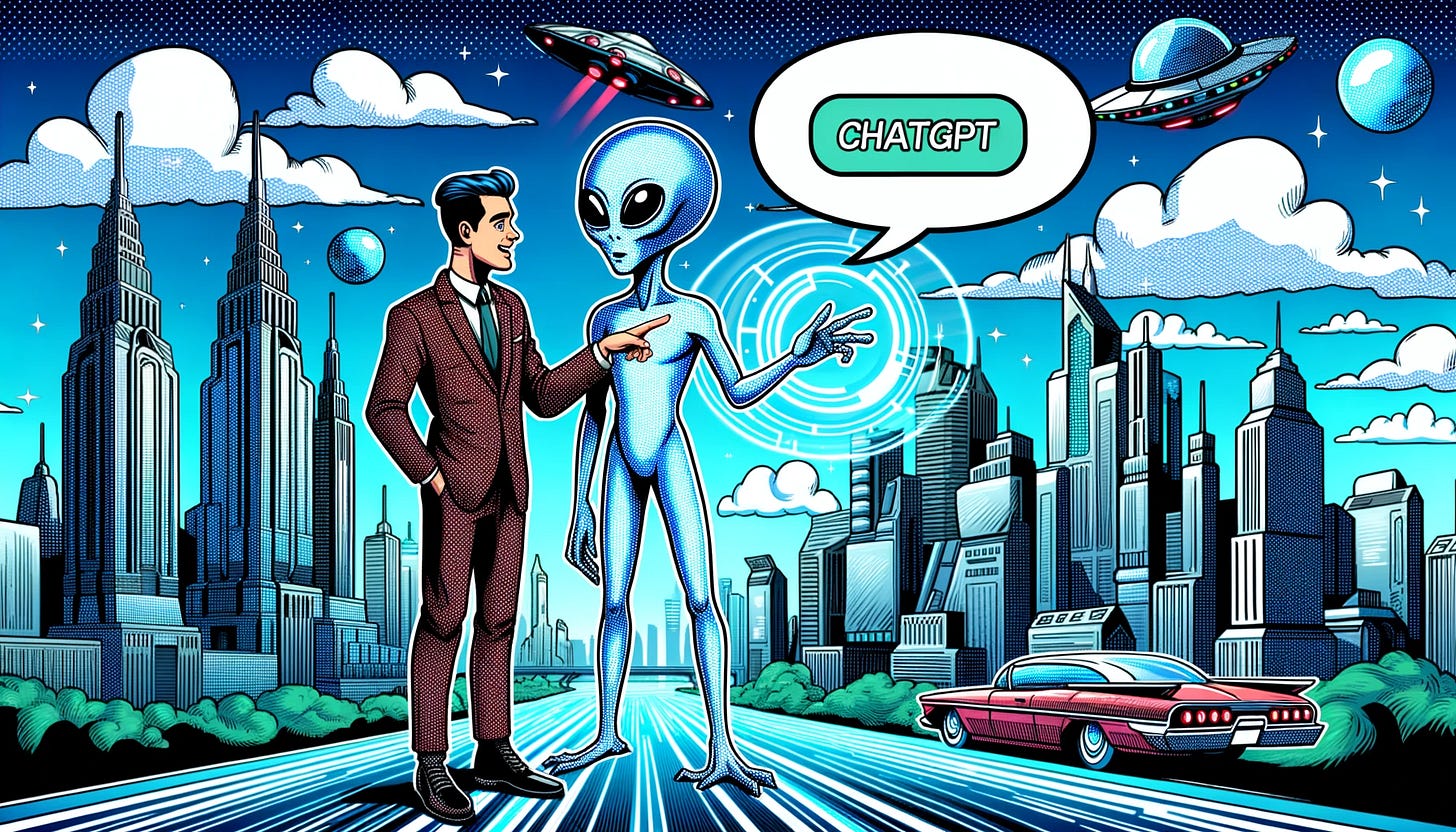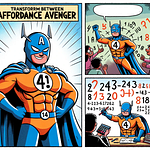In the latest installment of the "Humainity" podcast, Richard Russell and I explore the profound impact of the Internet on our culture and how AI is the latest stage of its evolution.
When we were students at MIT, we witnessed firsthand the skepticism surrounding non-symbolic approaches in AI. Prominent figures like Chomsky openly critiqued these methods, but as the years progressed, so did the technology. What was once dismissed as "Connectionism" now stands at the forefront as "Deep Learning."
The reason for this monumental shift? Richard believes it lies in the vast improvement in computing power, and I believe lies in the vast amounts of data shared by humans on the internet. Two decades ago, when we first set foot in MIT, the concept of deep learning was more theoretical than practical. Computational limitations restricted the scope of neural networks, rendering them shallow and less effective.
Yet, it wasn't just the surge in computing power that catalyzed this change; the Internet's pervasive influence on our lives created an abundant reservoir of data. This allowed AI to train on diverse and extensive datasets, which were previously inaccessible. Consequently, AI could better comprehend and replicate human behaviors, speech patterns, and decision-making processes. These massive training sets, enriched by the vast expanse of the Internet, have played a pivotal role in the rapid development of AI. We liken the Internet's evolution to a living organism, constantly adapting and growing. At its core, the humble hyperlink acts as the foundational building block, enabling a myriad of connections.
However, the real revolution lies not just in the technological advancements but in how they have reshaped human existence. The ubiquity of the Internet has interconnected humanity in unprecedented ways. The ability to instantly connect, share, and access information has transformed our perception of the world and our place in it. This transformation is evident in our changing attention spans. With a world of information at our fingertips, our minds have adapted to rapidly jump from one topic to another, mirroring the hyperlinks we so frequently click on. This "digital evolution" of our minds reflects our symbiotic relationship with technology.
This co-evolution with technology extends beyond just the Internet. The emergence of powerful search engines like Google has revolutionized how we access and consume information. One such pivotal moment was the advent of Google, which wasn't just a technological marvel but also a cultural phenomenon. The search engine's ability to bring a world of information to one's fingertips was unparalleled, democratizing knowledge in ways previously thought impossible.
Gone are the days when mothers were the ultimate arbiters of truth; now, a quick Google search answers our most pressing questions. With the rise of social media platforms like Facebook, every individual became a creator, marking a significant shift from passive consumption to active participation. This democratization of expression, while largely positive, also brought forth challenges. The cacophony of voices on the internet raises pertinent questions about information overload and the diminishing human attention span.
The rise of chatbots, particularly sophisticated ones like ChatGPT, heralds a new era where AI becomes an integral part of our daily conversations. These chatbots could soon evolve into semi-autonomous agents, capable of performing complex tasks on our behalf. The integration of chatbots into our daily lives is not merely a technological shift but also a cultural and societal one. Their omnipresence is reshaping how we perceive and interact with machines. No longer confined to the realm of simple query responses, the newer generation of chatbots, such as ChatGPT, is blurring the lines between human and machine interactions. Their ability to understand context, nuance, and emotion makes them increasingly indistinguishable from a human conversationalist.
As these chatbots transition from mere conversational tools to semi-autonomous agents, their potential applications expand exponentially. Imagine a scenario where a chatbot not only helps you schedule a meeting but also autonomously negotiates the best time and venue based on the preferences of all participants. Or consider a world where these agents can seamlessly handle customer complaints, manage logistics, or even assist in personal tasks like planning a surprise event for a loved one.
However, with such advancements come challenges. Ethical considerations about privacy, consent, and transparency become paramount. How do we ensure that these chatbots operate within defined boundaries? How do we instill a sense of trust when divulging personal information? And what about the potential job displacements in sectors heavily reliant on human interactions? This intertwining of humanity and AI brings forth ethical and philosophical dilemmas. The potential for AI to influence and shape culture is immense. But it's imperative to approach this potential with a blend of optimism and caution. We envision a world where AI doesn't just mimic human intelligence but augments it, offering new perspectives and insights. As AI continues to evolve, so will its role in shaping culture and pushing the boundaries of what it means to be human in a digital age.
Richard's reflections on the role of interfaces in AI development further deepen the discourse. He posits that as AI evolves, so will its interfaces, offering newer, more intuitive ways for humans to interact with machines. Drawing parallels with the biblical metaphors of God, he underscores the growing significance of human-centric interfaces in the world of AI. We end the episode with a brief discussion on the potential of AI to foster connections beyond the human realm; a future where AI facilitates connections with other species paints a picture of a world where technological advancements transcend human-centric boundaries.















